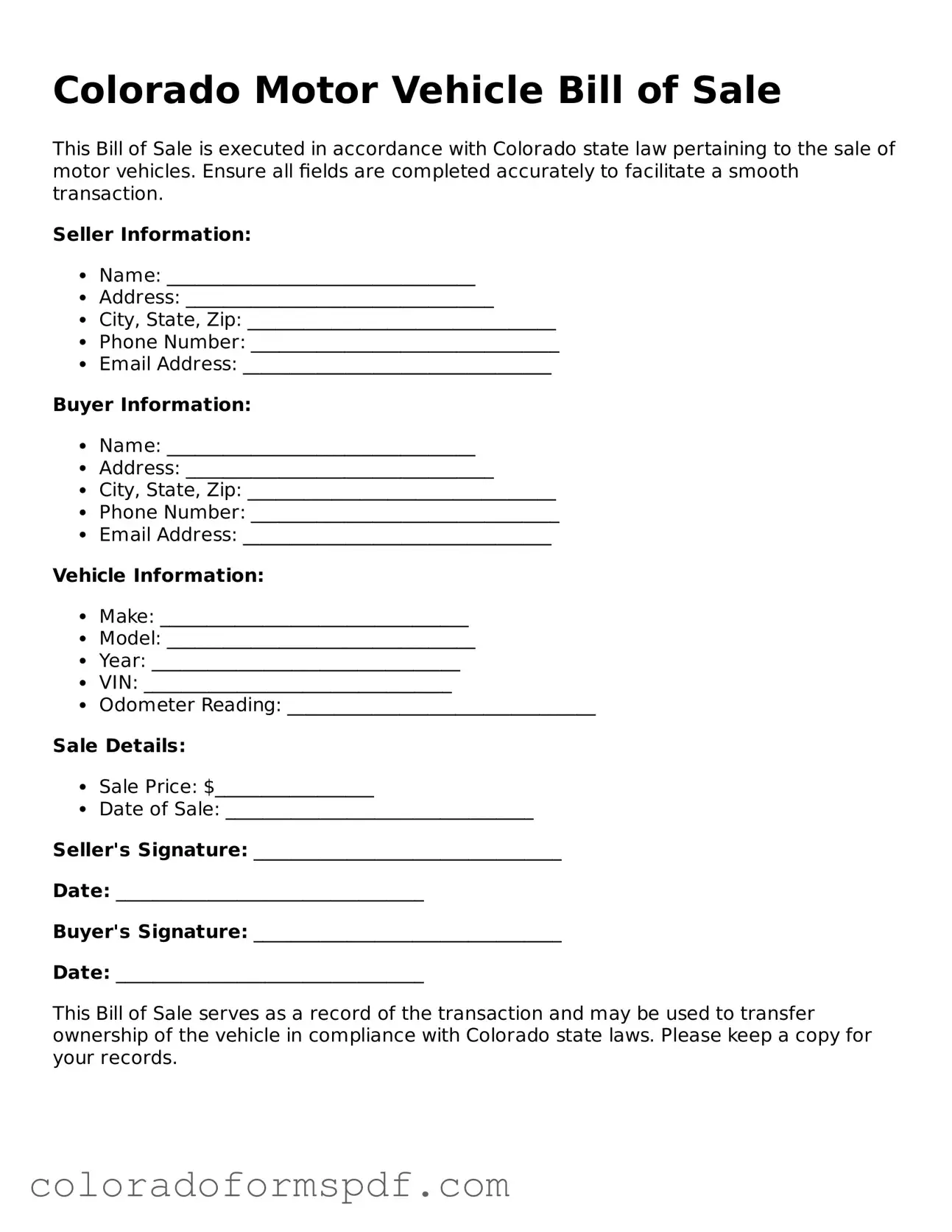Official Motor Vehicle Bill of Sale Template for Colorado State
The Colorado Motor Vehicle Bill of Sale form is a legal document used to record the transfer of ownership of a motor vehicle from one party to another. This form provides essential information about the vehicle, including its make, model, and identification number, as well as details about the buyer and seller. Completing this document is crucial for ensuring a smooth transaction and for maintaining accurate records with the Colorado Department of Revenue.
Get Document Online

Official Motor Vehicle Bill of Sale Template for Colorado State
Get Document Online

Get Document Online
or
Download PDF
Quick form completion starts here
Edit and finish your Motor Vehicle Bill of Sale online, then download.